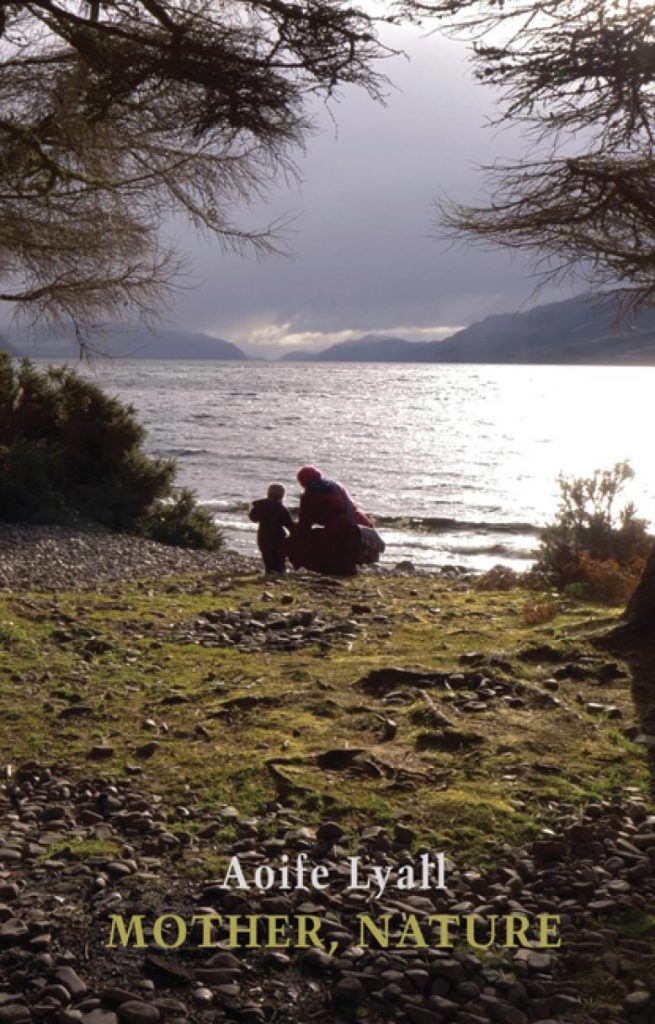Mother, Nature
Aoife Lyall
(Bloodaxe Books, 2021); pbk, £9.95
There are poems in this collection that knocked me clean to the ground… The subject is crucial, but it’s the beauty of the poems which hold it all together.
Hollie McNish’s jacket description of Aoife Lyall’s collection Mother, Nature is so accurate. The poems of this collection knocked me to the ground, only to have me scrambling back up so I could keep reading. The poems, two of which were shortlisted for the Hennessey New Irish Writing Awards, centre around Ireland-born Lyall’s own experiences of maternity, loss, and early motherhood. True, many writers have waded through such subjects, so what makes Lyall’s title special? There is her ability to bring such a dazzling array of raw emotion to the page without a hint of over-sentimentality. But there is also her profound ear for lyric and language.
The collection begins with an end. A poem about a miscarriage. ‘Sounds of that day’ is a perfect example of how Lyall allows us to feel powerful emotion, whilst using direct and pared-back language:
When the door
clicked shut behind us, it was the end
of all the silences there were.
The juxtaposition between sound and silence, of internal and external, is something which Lyall uses effectively throughout the collection. Doors, filing cabinets and pens are focused on here, in a way that feels like the narrator is trying to cope with her grief on the page in front of us. Similarly, a ‘shuffle’, a ‘muffle’ and a ‘clanging’ are backdrop to the lack of a heartbeat, making that silence hit us all the harder.
This plain language and sparse punctuation are very different to the saturation of question marks in the next poem, which is made up entirely of questions and cleverly titled ‘Ubi Sunt’. Here, frustration seeps out of the page, as the narrator asks where the things are she’d expected, along with the arrival of her baby. ‘Where are the words?’ she has us wondering. Reading on, these kinds of structural and tonal differences are something Lyall continues to experiment with throughout Mother, Nature. ‘Haunted’ is cracked in half by a crevasse of white space. ‘equilibrium (noun)’ is a numbered list. The complete myriad of emotions tied to maternity and motherhood are conveyed deftly through all sorts of plays with white space, structure, style, and form.
The emotional highs and lows of Mother, Nature are tumultuous. The crescendo could be considered the moment the narrator experiences a healthy birth. Lyall does not shy away from the visceral or the physical:
[…] They cut and stitch like fishermen,
gut and clean like fishermen’s wives[.]
Following these lines of ‘Afterbirth’ is a quieter run of poems which speak to those sleepy dream-like first weeks of parenthood. These are perhaps the poems that will sit with me the longest. In ‘syzygy’, Lyall describes the act of feeding a newborn:
[…] storm of tears, the moon
of your mouth pulling
the tide of my milk
the sound of the ocean
in every breath.
The soft, almost lullaby, cadence of this poem hit me just as hard as the sense of loss in ‘sounds of that day’, or the guttural imagery of ‘afterbirth’. This poem is also an example of how beautifully Lyall speaks to nature throughout the collection, especially to water. The simple four lines that make up the entirety of ‘Seabed’ prove just this:
When you fuss, your father turns
from cliff face to cove and curls
you into him, his steady breath
the swell that brings you home.
The way in which Lyall allows the soft slurring sibilance to crash against the alliterated c’s and b’s is only one example of how the soundscape of the collection is expertly weaved together, in a bid to carry us through the astronomical variety of emotion that motherhood can bring forth.
Nicole Gemine


Leave a Reply